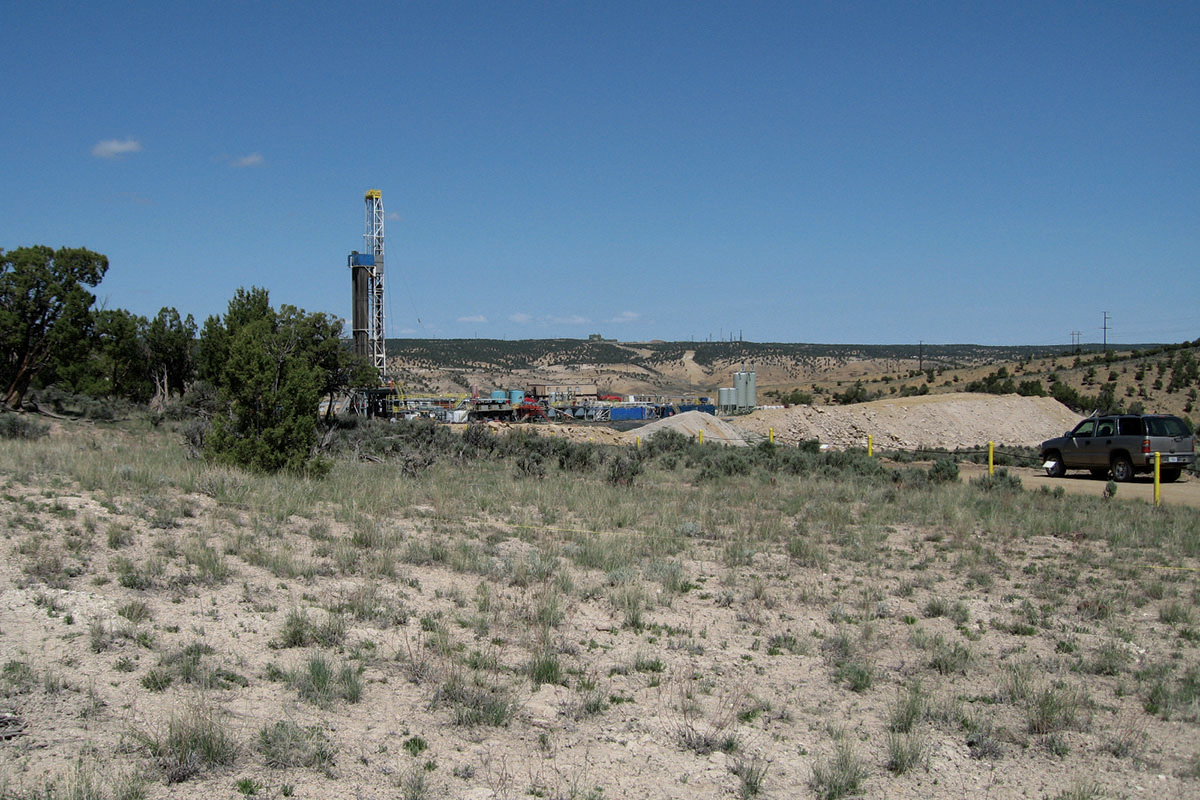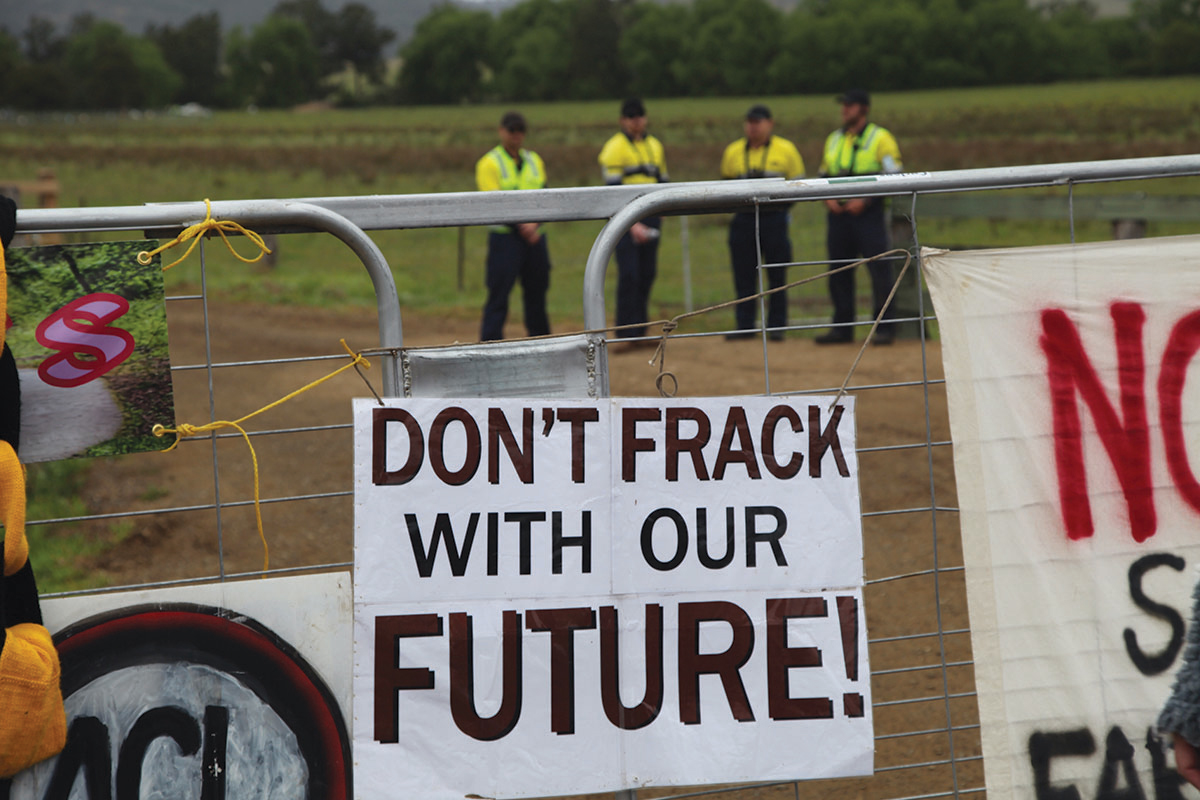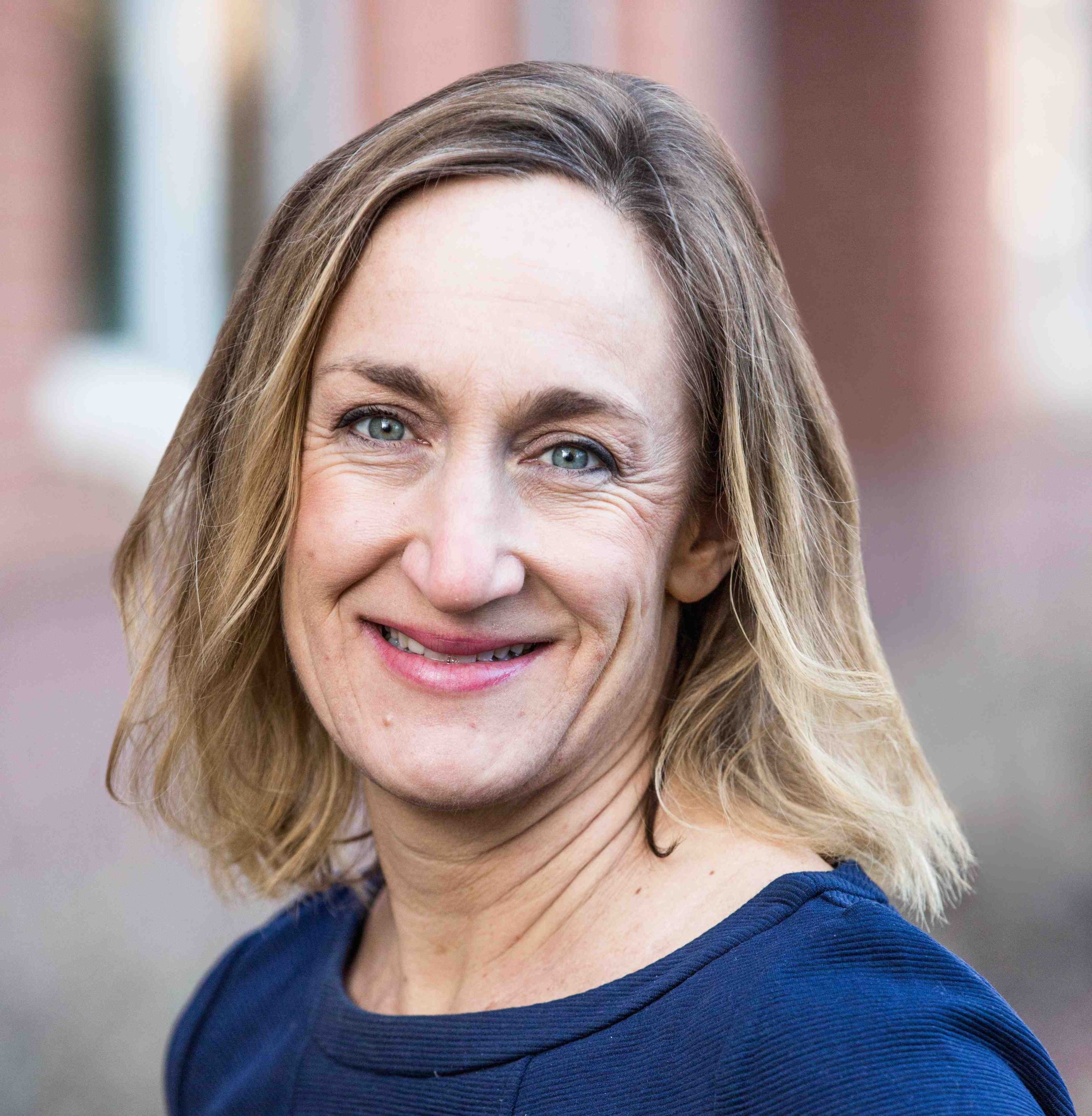Even a meek person can snarl like a rabid dog when faced with evidence that contradicts a closely held belief. I have had a sweet grandmother yell at me inches from my face as I try not to flinch from the spittle. When I moved from California to Colorado in my mid-twenties, I could not have anticipated that by my early forties I would regularly find myself in these kinds of situations.
As I finished my two-day drive and dropped into Boulder on State Highway 7, my entire identity was based on traditional green environmentalism. Back in California, I had protested the early ‘90s “war for oil.” I registered to vote first with the Peace and Freedom Party and then the Green Party. I loved and took solace in nature. I still do.
In Colorado, I matured, got married, had children, and life became more complicated. I eventually worked as a consultant to the oil and gas industry and later ended up representing the industry in various forums and media across Colorado. As you might imagine, my roles landed me in many public conflicts over oil and gas development.
I spent years trying to create peace. Most disputes over energy development ended badly, usually in a highly charged stalemate. Much of the conflict was rationalized by each protagonist referring to their own body of scientific work. I came to understand that, in reality, we were each choosing to believe the science that conformed with our own worldview.
Our underlying values drive how we seek and assess information. The drama of divisive energy and environmental issues is shaped by a number of unconscious biases. The remedy is to understand the fundamental identity that we bring to a conversation and use this awareness to be more deliberate in our selection of what informs our perspective.
People must engage in building relationships built on empathy and trust before scientific explanations will have any effect. Ideally, compassion for our opponent creates a foundation for a more meaningful and informed conversation. From an empathetic and receptive vantage point, energy and environmental discussions are not automatically easier, but they are more constructive. We can end the superficial sparring over science and instead seek the shared values that allow us to chart a path forward.
A Strange Choice
Five years ago, I regularly found myself in contentious town meetings representing the oil and gas industry as the CEO of the Colorado Oil and Gas Association, commonly known as COGA. The trade association represents oil and gas companies and their interests in the political, regulatory, legislative, and media arenas.
I went to COGA from my pleasantly busy but relatively boring job as a mid-level manager for an environmental consulting firm. I went for the crazy reason that I felt called to do so. I got to know oil and gas workers as my clients while permitting facilities and conducting environmental trainings. I thought I could help tamp down the conflict that was building over fracking throughout much of the West. That proved to be optimistic.
In addition to representing the industry publicly, I managed a professionally diverse board of directors representing companies from small family operators to international giants. We were responsible for wrangling these disparate interests into one industry position. My intent was to bring out the best in the industry and put the best foot forward on their behalf.
I thought I could help tamp down the conflict that was building over fracking throughout much of the West. That proved to be optimistic.
For me, going to work for COGA was a way of acknowledging my own consumption and our societal dependence on oil and gas. Further, as an environmentalist, I was excited about the potential for natural gas to be a meaningful part of curbing greenhouse gas emissions by displacing coal. Going to COGA was a strange compromise between joining the perceived “enemy” of my tribe and acknowledging that our tribe needed them.
Before I took the job, my husband and I discussed the risks and the implications in detail. We were both clear that if I ever felt I was compromising my values, I was prepared to leave. By my second year on the job, the fracking controversy was raging, and I regularly sat in community meetings explaining—or even debating—the merits and safety of oil and gas development. Communities had heard of fracking and were often certain that it would poison their groundwater. A furious debate ensued over which chemicals were added to the fracking fluids that were used a mile or so underground to create microcracks in rocks to release oil and gas. Many of the people who came to community meetings had never encountered oil and gas development directly before. And they were alarmed.
My hippy roots and background in environmental science and geology were not building the communication bridges I had naively anticipated. I was unnerved by the anger and fear I met in meeting after meeting, fueled by scary and misleading information, but also representing very real issues and concerns. I would metaphorically wave my research references as I presented to an agitated audience squirming in their seats. One by one, they would give public comment and ask angry questions referencing their own sources of frightening information about fracking.
I spent five years in that role, first focused on educating the public about fracking, and later, based on my trail of failures, convincing the industry that an education campaign alone would never work to build public confidence. Even the most thoughtful educational forum created a firestorm of anger and distrust. But why?
I am an environmental scientist and geologist, with no formal training in economics or psychology. I do, however, have two decades of experience on the front lines of resource conflict, so I will speak with some firsthand authority of what does not work when it comes to changing perceptions and offer some pragmatic suggestions of what can.
Dissonance Abounds
You probably have some strong feelings about fracking—most people do. Your feelings may or may not be based in an understanding of what its risks are, how it fits into oil and gas development, or how you feel about fossil fuels or climate change. But fracking is an F-word capable of igniting an awkward conversation with even my family doctor. The theory of cognitive dissonance helps explain why.
We all seek harmony between our beliefs, attitudes, and behaviors. When we see evidence that creates a conflict with what we already believe, we preserve our values. For example, when I read a newspaper article about fracking that I feel unfairly and unconsciously casts an oil and gas company in a bad light, I immediately seek harmony by dismissing the fairness and underlying intention of the story.
Similarly, when I present myself in a community meeting as an environmentalist and mother who is explaining the science of fracking, it can create its own cognitive dissonance. An attendee may in fact feel that she is the environmentalist and mother, and she does not believe that fracking is safe. The automatic response is to find a reason to dismiss me and my underlying intentions, usually by saying that I’m a shill for the industry.
To prevent the emotional discomfort of cognitive dissonance, we surround ourselves with like-minded people. The informational echo chambers allow us to experience more day-to-day harmony. By feeding ourselves news and intellectual conversations that reinforce our beliefs, attitudes, and behaviors, we create a cycle that further exacerbates the certainty of our own perspective.
This makes the exploration of scientific information quite challenging, especially amidst our polarized national politics. Loud, soundbite-spewing voices are needlessly dividing conversations about our environmental, natural, and economic resources. With this backdrop, intelligent conversations about tradeoffs of energy development become nearly impossible. In a cooler political climate, inhospitable to ill-founded passions, smart and reasonable people would discuss evidence concerning fracking. How I long for this elusive place.
Entangled in Bias
Early in my time at COGA, the dominant public fear about fracking was contamination of drinking water. In the San Juan Basin of southwestern Colorado, there had been a mandatory baseline groundwater-sampling program in place for the previous 10 years due to the shallow nature of the groundwater there and the natural intermingling of natural gas and water. I had some success presenting that data to audiences at educational forums. Publicly available data clearly demonstrated that even where groundwater was shallow, there were no instances of groundwater contamination from oil and gas operations. The common question was, what about drilling in my community?
I decided that COGA would create a voluntary baseline groundwater-sampling program. This was no simple feat. Under our voluntary program, whenever a company drilled a new well, it would take a groundwater sample from a nearby source before drilling, then take another sample one year later. It took months of work, but I ultimately got approval from my board. I then worked the phones for many more months until we had more than 98 percent of oil and gas operators in the state participating in the program.
The voluntary baseline sampling program was a clear success. It demonstrated that operators were willing to be proactive to assuage public concerns. A year later, the program would be codified as a state regulation with official COGA support. Today, tens of thousands of water sampling data are publicly available. The new mountain of data took the question of whether oil and gas development was systematically contaminating groundwater off the table. It was not.
The program, however, did nothing to resolve the conflicts around oil and gas development in Colorado. Public concern about oil and gas development quickly morphed into new issues. Initially, I was surprised. Each time one topic was resolved by a study or a new regulation, the next surfaced seemingly instantaneously. Now I understand the dynamic more clearly: Communities were concerned about fracking in their hearts and their guts, so they would find no shortage of new issues to worry about.
When I was in my early fact-splaining phase at COGA, a study from Cornell University came out declaring that gas was worse than coal in terms of carbon emissions. This study was a full-force slap in my environmental face. The tenuous ground on which I initially justified my defection to the oil and gas camp was the carbon and air quality benefits of natural gas compared to coal.
A research assistant and I went to work dissecting the study. We quickly ascertained that it was a wild exercise in hyperbole. The assumptions, methodology, and calculations were debunked by another Cornell scientist, a federal laboratory, and various other researchers.
That was 8 years ago, yet I continue to be told in both casual and formal conversations about natural gas that science has demonstrated gas is worse than coal. The long-debunked study is still loosely cited as the source of that information.
I now have a better understanding of why. It turns out that when we hear something compelling, we remember the tidbit, but we remember neither the source nor whether it was reliable. The phenomenon is what behavioral economists call “source amnesia bias,” and it is simple enough to grasp in our Facebook era.
In the case of the debunked Cornell paper, because the source sounds so reliable, tens of thousands of people have heard of a study saying that gas emissions are worse than coal emissions, and they continue to repeat it. Which unfortunately brings us to another documented phenomenon: the repetition effect. If we hear something many times, we become increasingly likely to conclude that “it must be true.”
I am an absurdly optimistic person, so it was discouraging to discover the hard way that there is yet another unconscious human reaction that makes it harder to wade into a community armed with educational material: the backfire effect. When given evidence that contradicts what we believe about an emotionally charged issue, we often become further entrenched in our own beliefs.
It’s easy to imagine how this plays out in a community that is genuinely afraid of fracking. Moms and dads arrive frightened and dubious, wanting to be comforted but prepared to sound an alarm if they are not. Industry engineers arrive with their poster boards and fact sheets, discussing thickness of pipes and depths of aquifers. Almost without fail, the attendees leave more enraged than when they arrived. In addition to distrusting the presenter, they feel talked down to, like their point of view has been dismissed, and their agitation is nearly unbearable. The backfire boomerang has made the situation worse.
Combining all of these biases, we can begin to understand why having a conversation about resource conflicts is so difficult. Cognitive dissonance makes us seek out sources of information that we are likely to agree with. We hear data that fit our worldview. Then source amnesia and the repetition effect kick in. All of this is exacerbated by the most familiar of all biases: confirmation bias. We seek out sources of information that confirm what we believe and dismiss the data that doesn’t. The result is the opposite of a virtuous cycle.
My Thinking Heart
It’s hard to say who I continue my work for: the people in the industry who struggle to convey the importance and diligence of their work, or the people in Colorado who think the oil and gas industry is out to poison us all in the name of profits. I’ve gotten long letters from both. The most gratifying so far was a woman in her thirties who is a visible and vocal environmental advocate and opponent of fracking. She read the book I wrote about this topic, Accidentally Adamant. We share love for many things in our community, including my children, even as we have always avoided discussing politics.
She told me that the book put her in a quandary. She believed my explanation of energy requirements, tradeoffs, and the benefits of oil and gas. This alone had undermined a fundamental identity for her, a comfort that her tribe was on the side of righteousness. Not only did she need to look deeper at all her beliefs, she explained, but now she was also uncomfortable that she had been taking her previously held assumptions for granted, on which many tiny decisions are based.
Choosing to be open-minded and flexible, opening yourself to different sources that make you ache with discomfort, and finding commonalities with people you disagree with is not for the faint of heart. But whatever your tribe, whatever your starting place, whatever walls and rationalizations you carry, it is possible to move onto the uncertain ground of honest listening and learning that can result in lasting and meaningful change.





